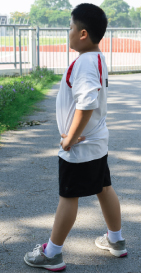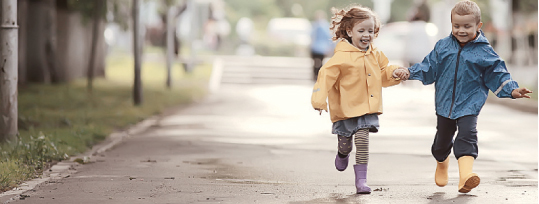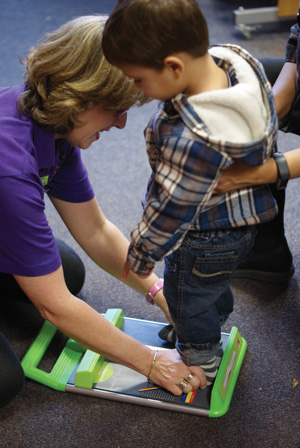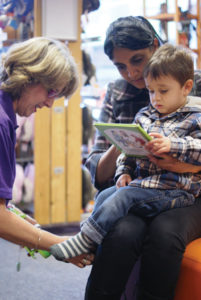
by Kim Jackson M.S.S.F.
Klodhoppers Ltd, Haywards Heath
We have to accept that as a nation we are getting bigger and heavier, and in the light of the Government’s recently updated document ‘Childhood Obesity: Applying All Our Health’ (1st May 2020), it is clear that as a nation we have an obesity problem that isn’t going to go away any time soon.
For many grown-ups and children, lockdown hasn’t helped! Childhood obesity and excess weight are significant health issues for children and their families. There can be serious implications for a child’s physical and mental health, which can then overlap into adulthood.
Obesity is associated with poor psychological and emotional health, and many children experience bullying and stigmatisation linked to their weight. Children and young people living with obesity are more likely to become adults living with obesity and therefore have a higher risk of morbidity, disability, low self-esteem and premature mortality in adulthood.
For some children it can mean more school absences (in order to avoid the bullies) in addition to the obvious health concerns such as high cholesterol, high blood pressure, diabetes, breathing difficulties and bone and joint problems.
So what has this got to do with shoes?
There has been a marked increase in overweight children in the last few years, and this can affect how a shoe is worn and its durability. Members of the Society of Shoe Fitters are trained in many aspects of shoe fitting for children and young people, and one of the factors to be taken into consideration is the weight of a child and the impact it may have on the wear and fit of a shoe.
The most important thing to remember about any footwear is that ‘it is essential to wear the right shoe for the right occasion’, so that footwear will perform correctly and in accordance with its design and manufacture. Shoes are designed to do different jobs and take varying amounts of wear and tear.
So for example:
• Party shoes are not designed for climbing trees.
• School shoes are designed to be worn five days a week within a school environment.
• Wellies and waterproof boots are made for puddles and muddy walks!
Overweight children (particularly boys) often resort to wearing trainers all day, every day, mainly because it’s the only type of footwear that fits and feels comfortable. The construction of a trainer offers comfort for the foot due to all the padding inside, the soft chunky soles and the ability to easily open up wide for a chubbier foot.
Strictly speaking, however, trainers are designed and manufactured to be worn for sporting activities, and not for all day wear. Daily wearing of trainers can be harmful to your feet and general health and can lead to another different set of foot health problems such as allowing the feet to ‘spread’ and become more flaccid. As a result when you go back to wearing a more structured shoe, you may suffer for a while.
Overweight girls often choose fashionable flat ‘pumps’ like a ballet shoe, but with no fastening. Again these are not ideal especially if they are not fitted correctly, as the foot can bulge over the topline of the shoe. This is not just unsightly, it can be very uncomfortable. It can also create the potential for the skin to be chafed and for blisters to develop. The child also has to ‘claw’ her toes in order to keep the shoes on, then the shoes either gradually stretch and turn into ‘flip flops’ or the backs get broken down so there is no support for the heel. Unless the pump is of high quality there is likely to be inadequate shock absorption in the sole and insole which can make the foot prone to plantar fasciitis – which is extremely painful. The arches of the feet become overworked and bear the child’s entire weight, as opposed to a properly constructed shoe which is designed to take weight in specific places throughout the shoe.
Taking a shoe wider and wider is not necessarily the answer to fit a chubbier foot. In fact it often pays to go longer and narrower (although the depth and the style of the shoe would be a greater consideration with an overweight child) as it is all about how the weight of the child’s foot is distributed within the shoe.
Extra body weight puts strain on the arches and muscles in the feet, ankles, legs and hips, affecting your entire physiology. Even migraines can be attributed to ill-fitting footwear.
Finding comfortable and supportive shoes for overweight children is important to keep young people active and mobile. If your feet hurt due to ill fitting shoes, then you exercise less and are likely to gain more weight – a vicious cycle.
GPs, chiropodists and podiatrists inevitably see more foot health problems due to obesity, but their knowledge of mainstream footwear may be limited. Contact a qualified shoe fitter who is more likely to be ‘in the know’ with the latest brands, designs or trends, and who has the knowledge needed for giving the correct fit.
A qualified shoe fitter will always recommend a structured shoe, preferably with a fastening (such as laces, or a Velcro® strap, or a strap with a buckle) for children who need the correct footwear and who need to get in shape.
What adults choose to do with their feet is their concern, however as a parent we have a duty of care to our children to ensure that during the long growing period extreme care must be taken to avoid persistent pressure on the developing foot. Before the bones in a child’s foot have fully formed there is a danger of the bones becoming distorted by pressure due to inappropriate or ill fitting footwear. The additional problem of obesity in a child is another vital factor to be taken into account when getting their shoes fitted correctly.
If in doubt, then always consult a health professional or take advice from a qualified shoe fitter – remember that a child’s formative years shape the future of their feet and the way they walk and can have profound and far-reaching effects on their whole physiology.
Kim Jackson M.S.S.F (Member of the Society of Shoe Fitters & Children’s Foot Health Register accredited) Klodhoppers, Haywards Heath. www.klodhoppers.com





 Having over 30 years combined shoe-fitting experience, we could line up at least 10 pairs of the same size shoe, but if they are all 10 different brands, even if they are similar styles, we can guarantee that they will all fit slightly differently on one child’s feet! Some of those fits will be better than others – this is where our guidance, advice, knowledge and expertise comes into play.
Having over 30 years combined shoe-fitting experience, we could line up at least 10 pairs of the same size shoe, but if they are all 10 different brands, even if they are similar styles, we can guarantee that they will all fit slightly differently on one child’s feet! Some of those fits will be better than others – this is where our guidance, advice, knowledge and expertise comes into play.




 Organix weaning and finger foods help babies discover new shapes, tastes and textures, and our wide range of toddler snacks provide parents with healthier snacking options to fuel happy days.You can find heaps of further information in the Organix Baby & Toddler Cookbook which has over 70 quick and easy recipes from weaning purees to dinner time faves for the whole family to enjoy!
Organix weaning and finger foods help babies discover new shapes, tastes and textures, and our wide range of toddler snacks provide parents with healthier snacking options to fuel happy days.You can find heaps of further information in the Organix Baby & Toddler Cookbook which has over 70 quick and easy recipes from weaning purees to dinner time faves for the whole family to enjoy!










